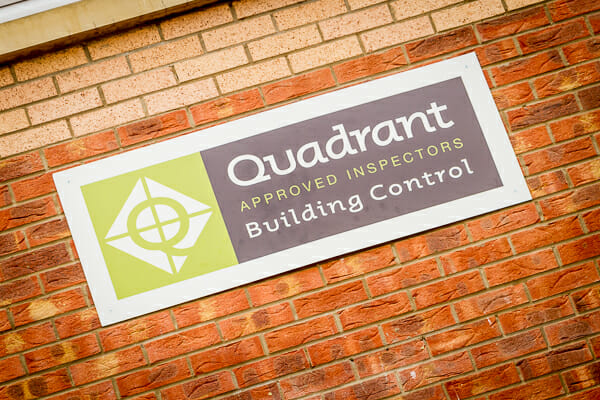
A leading building control service for England and Wales recently inspected the eco-credentials of what is dubbed the ‘Future-Proof Home’.
Quadrant Building Control inspected an exclusive development of five Trivselhus houses in the rural village of Meopham in the heart of Kent.
The two and four bedroom detached houses in Meopham’s Windmill Close were built by small-scale niche house builder Cedar Rydal in partnership with Swedish building company Trivselhus.
Paul Knight, Director at Quadrant Building Control, said: “The thermal standards that these houses have been built to exceed the current standards required by the building regulations and the recommended standards for zero-carbon homes that the Government committed to introducing in future changes to the building regulations.”
Trivselhus doors and windows are triple-glazed, argon-filled units that are pre-fitted in the factory and arrive on site within the completed wall panel. Service conduits for electricity and plumbing are included in the build at the factory stage so that no holes need to be made in the walls or floors on site.
Paul commented: “These features are aimed at minimising construction time while ensuring that the occupants don’t experience draughts and energy loss. The whole house has mechanical ventilation with heat recovery for good air quality and no wasted warmth.
“In the Meopham houses, heating and hot water come from a high-efficiency gas condensing boiler with a hot water storage cylinder and radiators.
“This creates homes that are very thermally efficient, require low heating loads and provide a clean, fresh and comfortable internal environment insulated from external noise.”
But what makes the Trivselhus (roughly translated as ‘house of wellbeing’) so ‘future-proof’ is the thermal insulation, according to Joe Campion, Director at Quadrant Building Control.
“There is 240mm of mineral wool insulation built into the closed panels of the house at factory stage, which provides a highly insulated layer,” said Joe.
“It is very difficult to put more thermal insulation into the fabric of a standard house. Future-proofing means maximising the building’s thermal insulation so that future improvements such as installing photovoltaic (PV) solar panels for additional energy and a solar thermal system for significantly reducing water heating bills become easy.
“Solar thermal and PV solar panels can be fitted post-completion as Government subsidies, Feed in Tariffs and Renewable Heat Incentives are still available when fitting these systems to a completed house rather than including them during the construction process.”
Quadrant Building Control is a leading private sector building control service for all types and sizes of domestic and commercial buildings across England and Wales. It has an office in central London as well as offices in Leicester, Stamford and Lincoln.
